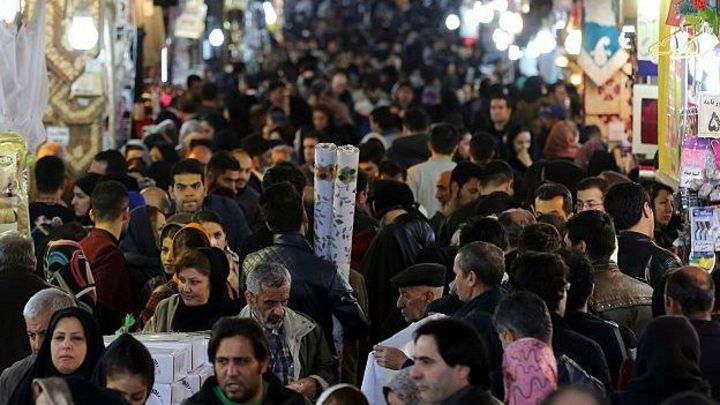London- With less than a day left for the Iranian presidential elections, anger bubbling up among Iran’s non-Persian minorities on deteriorating living conditions threatens to undermine the legitimacy of holding elections in the first place.
Small ethnic pockets in Iran present one of the most debated subjects on which electoral campaigns focused, alongside other national concerns such as the trembling economy, social strife, and overall security.
Presidential candidate President Rouhani who is seeking another mandate and Iranian Supreme Leader protégé Ebrahim Raisi have come head-to-head in fierce debates each riding the wave on freedoms, fighting corruption, resolving dilemmas faced by non-Persian nationalities and the rights of religious minorities.
Being a first in post-2009 election history, the escalating arguments prompted Khamenei to deliver a direct warning against the consequences of stirring “ideological, geographic, national,” sentiment.
A “Great earthquake” could collapse the Iranian fabric, he justified.
The withdrawal of other conservative candidates has turned Friday’s election into an unexpectedly tight two-horse race between moderate pragmatist cleric Rouhani and hardline conservative cleric Raisi.
Khamenei’s call for muffling election rhetoric was echoed in last Friday’s sermon across the nation. In Tehran, cleric Kazem Siddiqui called on campaigners and candidates to not involve national and sectarian challenges in their speeches.
“Regardless of officials who were appointed or relieved from duty, the Baloch people stood in solidarity with the regime,” he said.
He added that Baloch people in eastern Iran are struck with poverty and in order to solve their problems they have resorted to smuggling.
Had we been more determined on eradicating economic challenges they wouldn’t need to resort to paralegal means to survive, said Siddiqui in a thinly-veiled jab at Rouhani’s failed delivery on promises on bettering the economy.
Four years ago, Rouhani chose to appoint former security minister Ali Younesi as special delegate for non-Persian Iranians and religious minorities.
Rohani–after playing the chords of ‘liberties’ in a bet to soften criticism on his economic shortcoming– raised the roof of his promises to ethnic minorities in the election season.
Rouhani’s administration has tried to limit the demands of the Arabs, Kurds, Baloch and Turks to their right to hold cultural programs and organize festivals.
Lifting restrictions on minorities was attempted through collaboration between Younesi, Iranian intelligence, and in coordination with the Revolutionary Guard. It was an attempt to defuse tensions and bottle the genie that Former Mahmoud Ahmadinejad had released.
Despite the effort spent by Rouhani, improving the living conditions of non-Persian minorities in Iran is considered by far the biggest challenge facing decision-making circles in Tehran.
